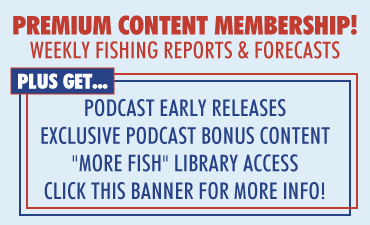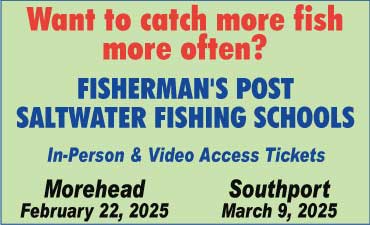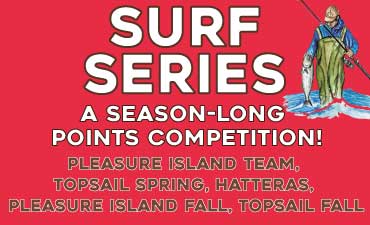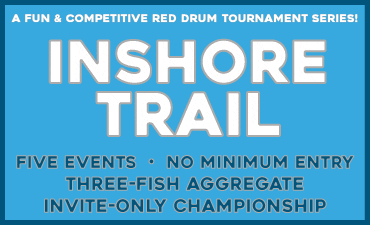Releases July 11, 2013
Four advisory committees will meet jointly July 30 to discuss a petition for rulemaking that proposes reclassifying most internal coastal waters as secondary nursery areas.
The meeting will be held at 12:30 p.m. on July 30 at the New Bern Riverfront Convention Center, 203 South Front St., New Bern. To accommodate as many speakers as possible, public comment will be limited to three minutes per person.
The Finfish, Shellfish/Crustacean, Habitat and Water Quality and Sea Turtle advisory committees will be asked to review and comment on whether the state should reclassify waters as requested in a petition for rulemaking submitted June 20 by Tim Hergenrader.
The petition asks the Marine Fisheries Commission to adopt a rule that makes North Carolina’s internal coastal waters permanent secondary nursery areas, unless they are currently designated as primary nursery areas or special secondary nursery areas. The petition states the primary effect of the proposed rule would be to halt shrimp trawling in North Carolina inshore waters.
Under state law, the Marine Fisheries Commission has 120 days from the date a formal petition for rulemaking is submitted to either grant or deny the petition. The commission is expected to vote on the petition at its August 28-30 meeting in Raleigh.
If the commission grants the petition, it will begin a rulemaking process which will include fiscal analysis, notice of text in the state register, a public comment period, and at least one public hearing.
Public comment will not be taken on this petition for rulemaking at any Shrimp Fishery Management Plan Advisory Committee meeting because the matter falls outside of the committee’s purview.
For more information, contact Nancy Fish, division liaison to the Marine Fisheries Commission, at (252) 808-8021 or Nancy.Fish@ncdenr.gov.
The N.C. Wildlife Resources Commission reported results from their recent Operation Dry Water, an annual nationwide education and enforcement campaign to alert boaters to the dangers of operating a boat while impaired (OWI).
“Arrests for operating while impaired in North Carolina were down this year from previous campaigns,” said Maj. Chris Huebner, the state boating law administrator for the Wildlife Commission. “I think the majority of boaters understand the added risks and make the smart choices while on the water. I hope that continues to be the case.”
The state results from Operation Dry Water in 2013 are as follows: Vessels Contacted—2,361; Boaters Contacted—6,041; Citations Issued—153; Warnings issued—326; Non-Boating Violations—190; OWI arrests—22; Highest Blood Alcohol Concentration—0.22 (three times the legal limit); and Participating Officers—171.
The 2012 results included 6,152 boaters contacted and 32 OWI arrests. In North Carolina, OWI penalties include a maximum $1,000 fine and possible jail time.
Since the launch of Operation Dry Water in 2009 by the National Association of State Boating Law Administrators and the U.S. Coast Guard, the percentage of boating fatalities with alcohol listed as a contributing factor has decreased from 19 percent to 17 percent in the United States.
Despite the decrease, OWI still accounts for a disproportional number of on-the-water deaths. In 2011, alcohol was a contributing factor in just 8 percent of boating accidents overall, but figured in 17 percent of boating fatalities.
For information on navigation rules and boating safety, as well as locations to boat and public access areas, go to www.ncwildlife.org/boating or call (919) 707-0031.
The Coastal Conservation Association of North Carolina—an association dedicated to preserving and protecting our marine fisheries for current and future generations—announced that it has selected one student to receive a $ 2,000 scholarship to further their educational goals in the area of Marine Science.
“We look for students doing work in the area of Marine Science who have projects that will be of benefit long term to the anglers of North Carolina,” said Stephen Ammons, Executive Director of CCA NC.
After reviewing the candidates for the $2,000 scholarship for 2013, the selection committee reached a unanimous agreement on a deserving candidate—Samantha Binion from North Carolina State University in the Fisheries, Wildlife, and Conservation Biology Program.
Under the direction of Dr. Jeff Buckel, Samantha is seeking her doctoral degree at NC State with her project focused on conducting a multispecies food habits study in the Pamlico Sound and its associated tributaries. This study will allow Samantha to address many topics pertinent to the management of several recreational fishing stocks within the state, including estimates of total predator demand, identification of important forage species, and the detection of predation “hotspots”.
This project is vital to the overall health of North Carolina fisheries and is consistent with the many efforts of CCA NC to improve our marine resources.
NOAA Fisheries is seeking public comment on proposed actions in Regulatory Amendment 19 to the Fishery Management Plan for the Snapper-Grouper Fishery of the South Atlantic Region. The proposed rule was published in the Federal Register on July 2, 2013 (78 FR 39700). Comments must be received on or before August 1, 2013.
The health of the black sea bass population in the South Atlantic was assessed in 2013. The black sea bass population is not undergoing overfishing (fish being removed too quickly), is not overfished (too few fish in the population), and is rebuilt. The assessment results suggest the black sea bass catch levels can be increased without jeopardizing the health of the population.
The proposed rule would increase the commercial and recreational annual catch limits and the recreational annual catch target for black sea bass. The sector annual catch limits and recreational annual catch target would change as indicated below.
Fishing Year 2014-2015: 780,020 Commercial annual catch limit; 1,033,980 Recreational annual catch limit; and 903,905 Recreational annual catch target.
Fishing Year 2015-2016: 780,020 Commercial annual catch limit; 1,033,980 Recreational annual catch limit; and 903,905 Recreational annual catch target .
Fishing Year 2016-2017: 755,274 Commercial annual catch limit; 1,001,177 Recreational annual catch limit; and 875,228 Recreational annual catch target.
The fishing years are from June 1 through May 31, values are in pounds whole weight, and the annual catch limits for 2016-2017 would remain in place until modified.
Regulatory Amendment 19 would also prohibit the use of black sea bass pots annually from November 1 through April 30, which corresponds to the large whale migration and the right whale calving season in the South Atlantic. The prohibition would be a precautionary measure to prevent interactions between black sea bass pot gear and whales listed under the Endangered Species Act during large whale migrations and the right whale calving season off the southeastern coast.
Comments on the proposed rule for Regulatory Amendment 19 must be received on or before August 1, 2013, to be considered by NOAA Fisheries.
You may submit comments either electronically or through mail. Comments received through other means may not be considered.
Submit all electronic public comments via the Federal e-Rulemaking Portal. Go to http://www.regulations.gov/#!docketDetail;D=NOAA-NMFS-2013-0096 and click on “Comment Now!” Complete the required fields, and enter or attach your comments. Attachments to electronic comments (up to 10 MB) will be accepted in Microsoft Word, Excel, WordPerfect, or Adobe PDF file formats only.
Or you can mail in comments to Rick DeVictor, NOAA Fisheries, Southeast Regional Office, Sustainable Fisheries Division, 263 13th Avenue South, St. Petersburg, Florida 33701-5505.
All comments will be part of the public record and generally posted for public viewing to www.regulations.gov without change. All personal identifying information (for example, name, address, etc.) voluntarily submitted by the commenter may be publicly accessible. Do not submit confidential business information or otherwise sensitive or protected information. Anonymous comments will be accepted.
More information, including Frequently Asked Questions for Regulatory Amendment 19, can be found online at http://sero.nmfs.noaa.gov/sustainable_fisheries/s_atl/sg/bsb/index.html and http://sero.nmfs.noaa.gov/sf/SASnapperGrouperHomepage.htm.





